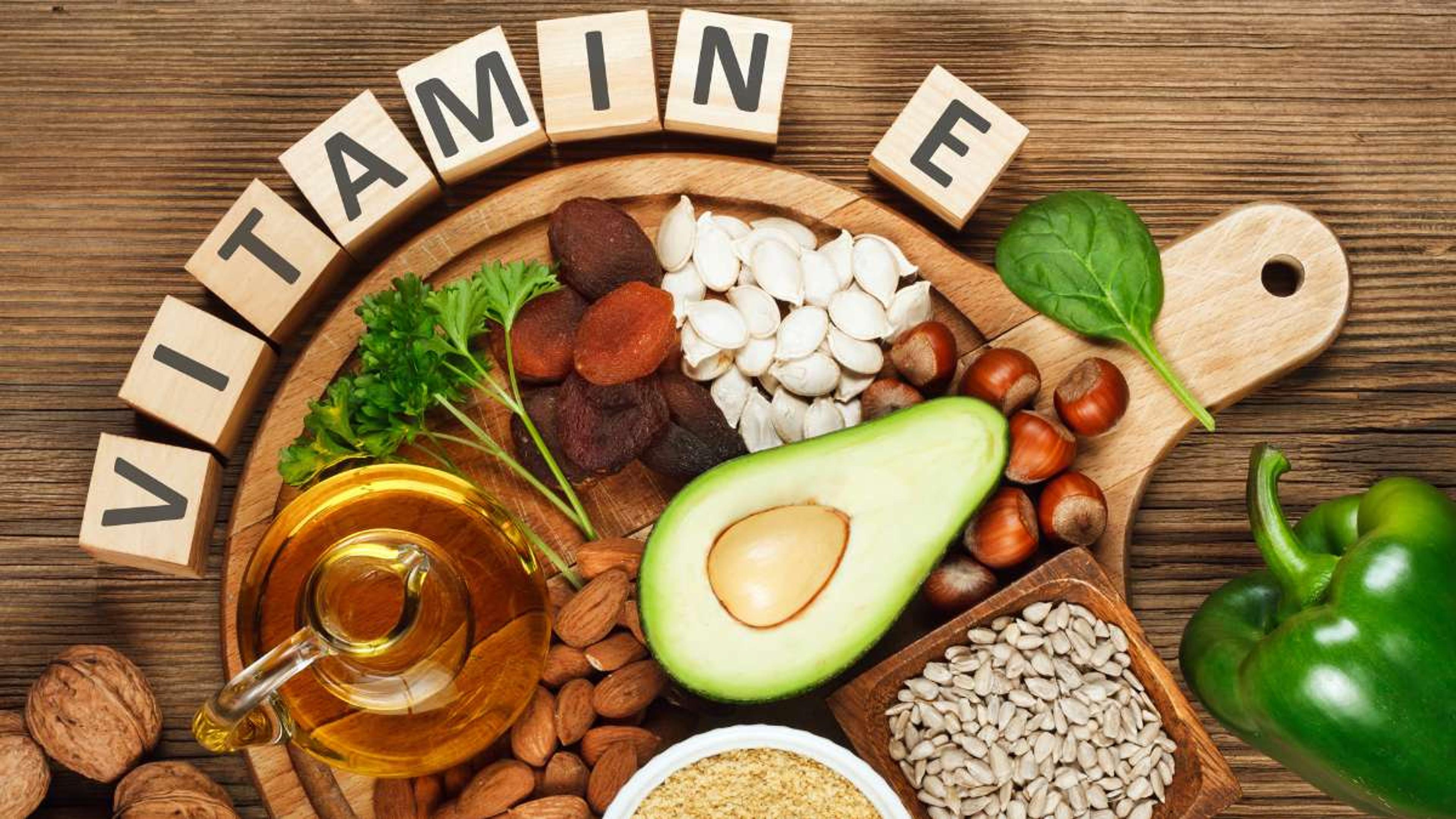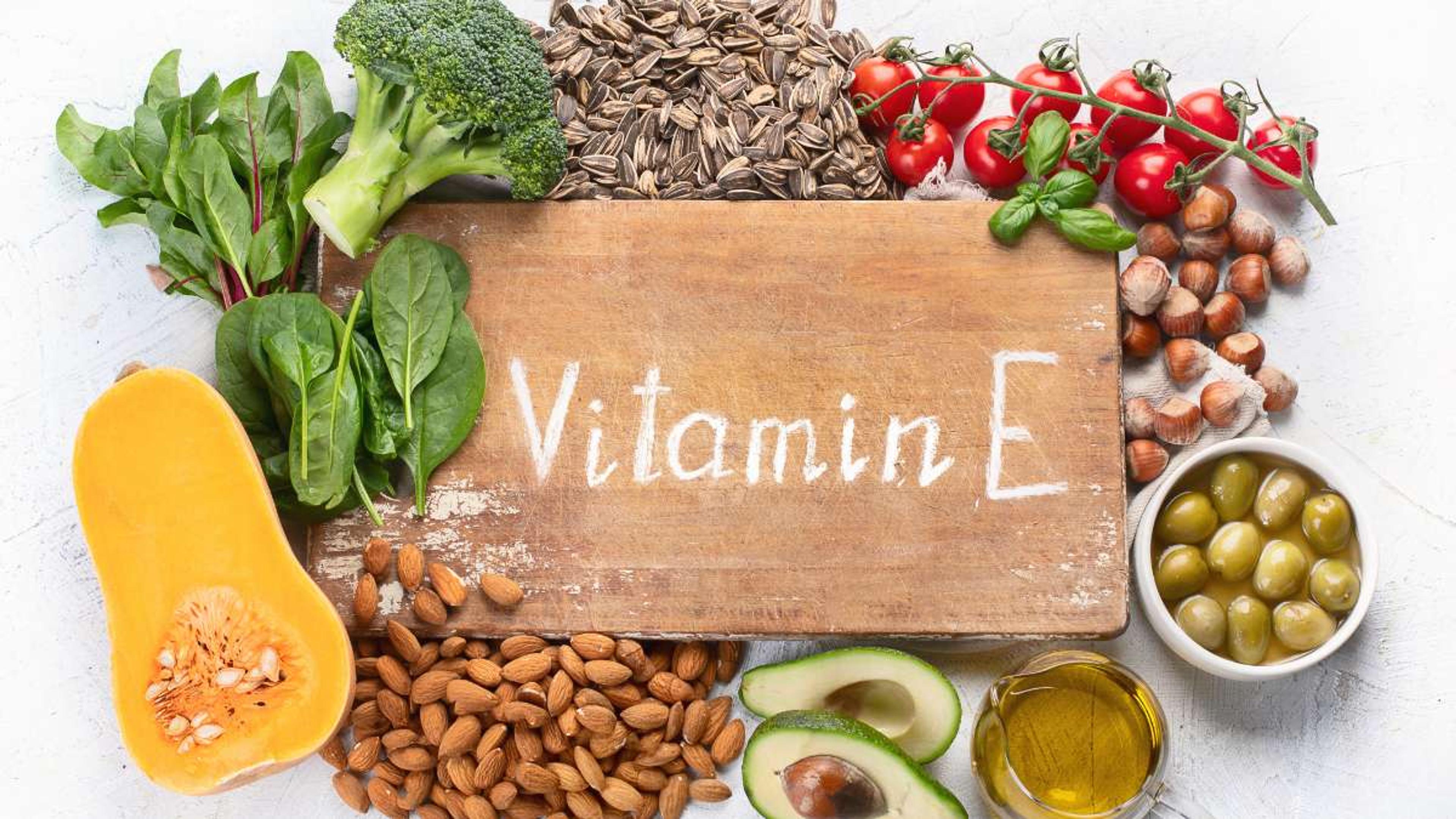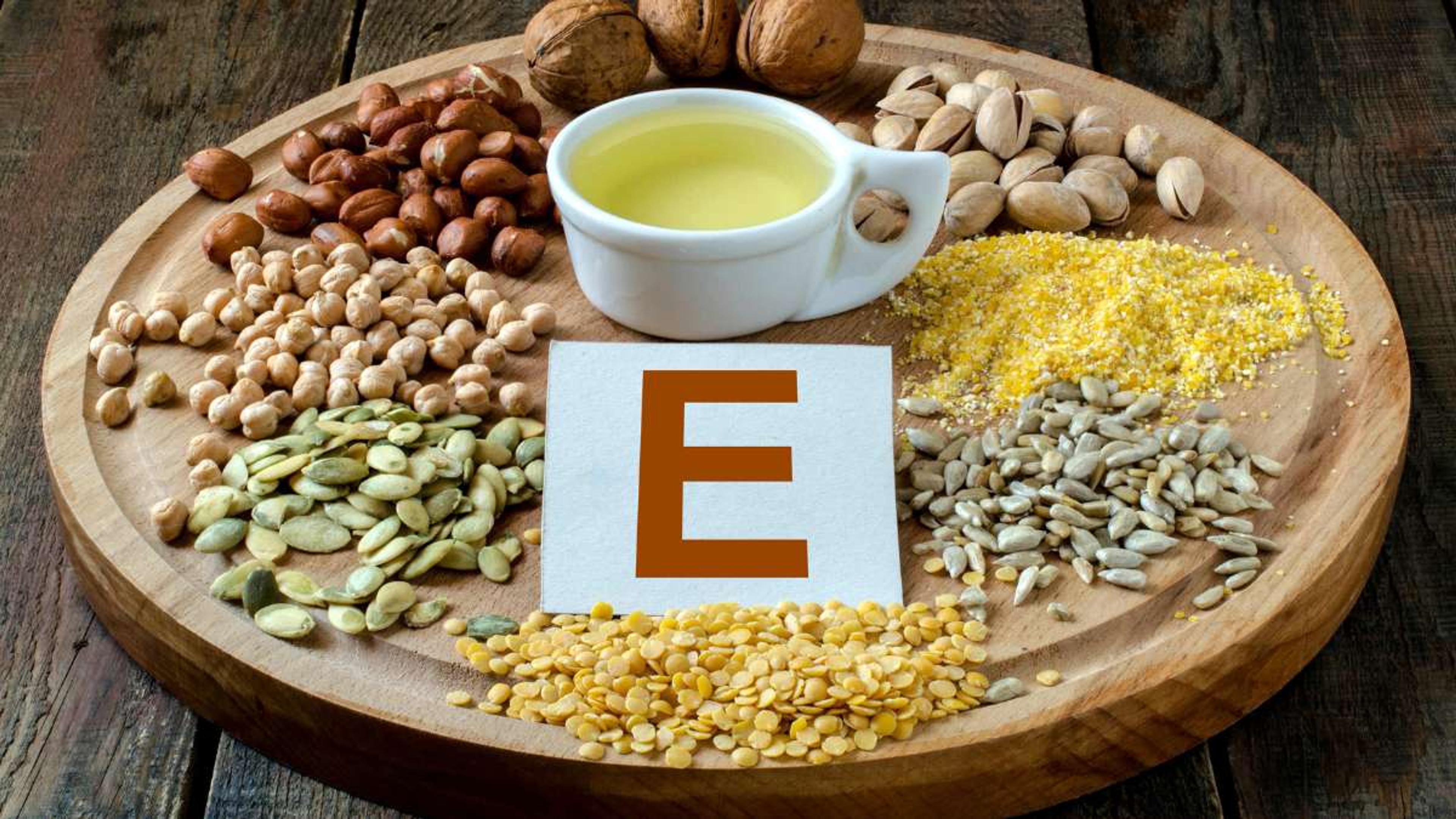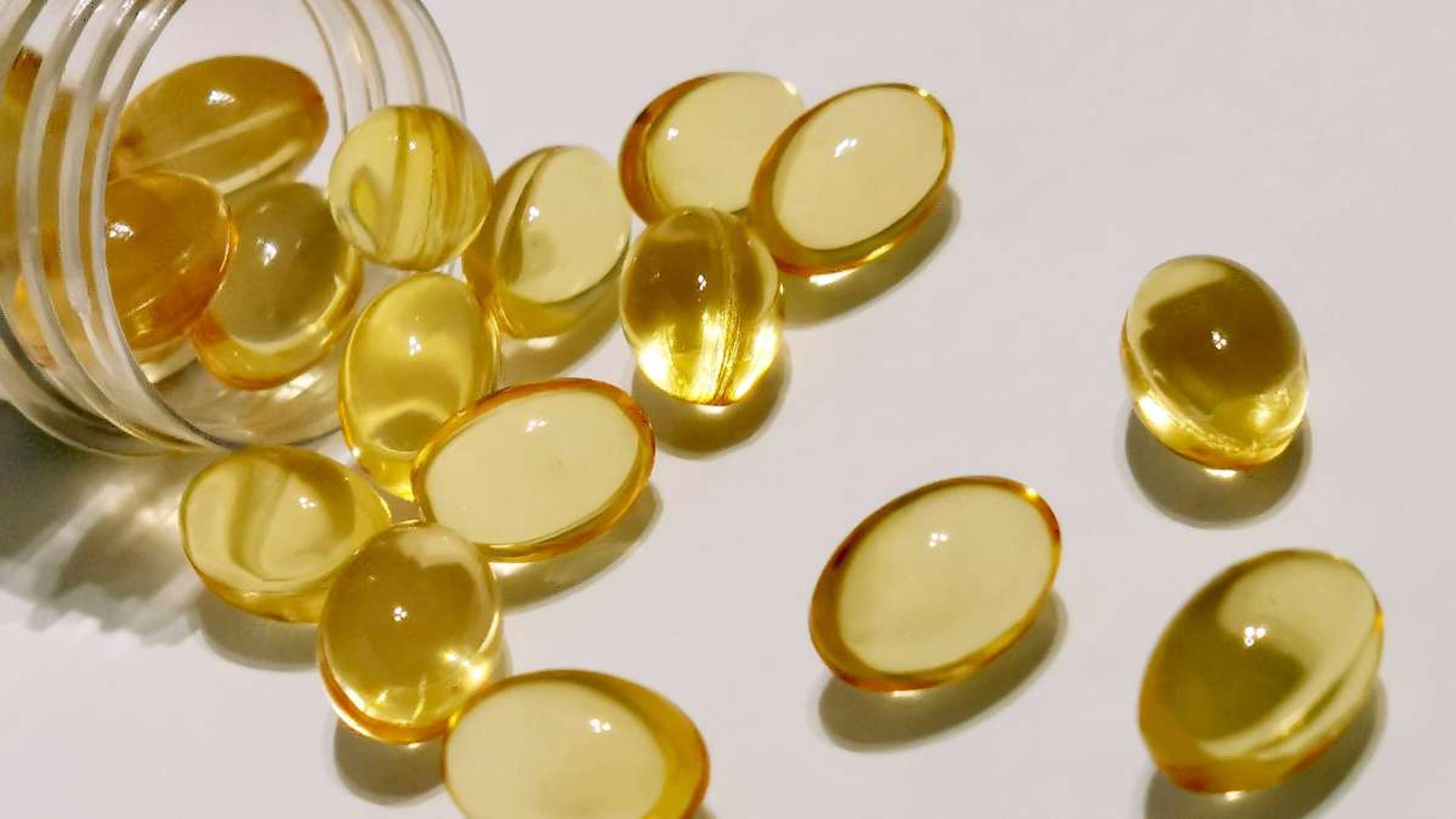The Ultimate Guide to Vegan Sources of Vitamin E

- Key Takeaways
- Understanding Vitamin E and its Importance for Vegans
- Top Vegan Food Sources of Vitamin E
- Benefits of Vitamin E for Vegans
- Tips for Incorporating Vitamin E-Rich Foods into a Vegan Diet
- Conclusion
- FAQs
Are you a vegan struggling to ensure adequate vitamin E intake? Vitamin E is crucial for cell protection and maintaining healthy skin, yet it can sometimes be tricky to get sufficient amounts from a plant-based diet.
This article outlines top vegan-friendly sources of this essential nutrient along with its benefits and tips on including these foods in your daily meals. Read on if you're ready to boost your health, naturally!
Key Takeaways
- Vitamin E is a crucial nutrient for vegans as it plays a role in cell protection and maintaining healthy skin.
- Vegan-friendly sources of vitamin E include almonds, sunflower seeds, hazelnuts, green leafy vegetables, avocado, and fortified foods like almond milk and acai berry juice.
- Incorporating these foods into your diet can provide antioxidant benefits, support the immune system, promote skin health, and help meet the recommended daily intake of vitamin E.
Understanding Vitamin E and its Importance for Vegans
Vitamin E is an essential nutrient for vegans, as it plays a crucial role in maintaining overall health and well-being.
What is Vitamin E and why is it important for vegans?
Vitamin E is a powerful antioxidant that protects the body's cells from damage by free radicals. This fat-soluble vitamin plays an essential role in immune function, cell signaling, and metabolic processes.
For vegans, getting enough Vitamin E can be challenging as it's primarily found in plant products such as nuts, seeds, and certain oils. A deficiency could lead to weakened immune function and other health issues.
Therefore, consuming adequate amounts of Vitamin E-rich foods becomes necessary for vegans to maintain their overall health.
Recommended daily intake of Vitamin E
The recommended daily intake of Vitamin E for fully grown adults is established at 15 milligrams, equivalent to approximately 22.4 international units (IU). This dosage aids in protecting the body's cells from damage and supports a strong immune system.
Maintaining this level can be easily achieved through regular consumption of Vitamin E-rich foods prominent in a vegan diet. For example, just one tablespoon of wheat germ oil offers more than the daily requirement, with about 20 milligrams of Vitamin E.
Including other sources like sunflower seeds and almonds into your meals also contributes significantly to meeting the advised amount. A serving size of sunflower seeds provides an impressive 66% of your daily value (DV) while incorporating almonds into your snack routine covers around 48%.
Notably, even a small portion of hazelnuts fulfills nearly 30% of the necessitated intake proving that sustaining sufficient levels as part of a carefully planned vegan diet is absolutely feasible without resorting to supplements or fortified foods.
Top Vegan Food Sources of Vitamin E
Vegan food sources that are rich in vitamin E include almonds, sunflower seeds, hazelnuts, olive oil, wheat germ oil, and green leafy vegetables like spinach and broccoli.

Nuts, Nut butters and seeds (almonds, sunflower seeds, hazelnuts)
Incorporating nuts, nut butters, and seeds into a vegan diet can substantially boost Vitamin E intake. Here's how:
- Almonds: Adding a handful of almonds to your daily snacks provides not only vitamin E but also fiber, protein, and healthy fats.
- Sunflower Seeds: Sprinkle these nutrient-dense seeds on salads or incorporate them in homemade bread for an essential dash of vitamin E.
- Hazelnuts: These nuts are known for their rich taste and impressive nutrient profile which includes a high amount of vitamin E.
- Nut Butters: Whether it’s almond butter or hazelnut spread, these delicious options offer an easy way to up your vitamin E intake.
- Other Nuts and Seeds: Include pistachios, peanut butter in moderation as they too contribute toward daily Vitamin E needs.
Plant oils and spreads (olive oil, wheat germ oil, soybean oil)
Plant oils and spreads like olive oil, wheat germ oil, and soybean oil are excellent vegan sources of vitamin E. These oils are rich in this essential nutrient that promotes overall health and well-being. Incorporating these oils into your daily meals can help meet your recommended intake of vitamin E and provide you with its antioxidant benefits. So next time you’re cooking or preparing a salad dressing, consider using olive oil, wheat germ oil, or soybean oil to boost your vitamin E intake.
Green leafy vegetables (spinach, broccolli)
Green leafy vegetables like spinach and broccoli are excellent vegan sources of vitamin E. These vegetables are not only packed with this important nutrient, but also provide a whole range of other beneficial vitamins and minerals. Spinach, for example, is known for its high levels of calcium, making it a great choice for vegans looking to meet their daily needs of this mineral. Broccoli is another powerhouse vegetable that offers vitamins C and K, folate, and calcium in addition to vitamin E. Incorporating these green leafy vegetables into your daily meals is a simple and delicious way to boost your vitamin E intake while enjoying the many health benefits they offer.
Avocado and other fruits (kiwi, mango)
Avocado, kiwi, and mango are excellent vegan sources of vitamin E. These fruits pack a powerful punch when it comes to this essential nutrient, making them a great addition to any plant-based diet. Including avocado, kiwi, and mango in your meals and snacks can help ensure that you are meeting your daily intake of vitamin E. So go ahead and enjoy the delicious taste of these fruits while reaping their nutritional benefits!
Fortified foods (almond milk, acai berry juice)
Fortified foods, such as almond milk and acai berry juice, are excellent sources of vitamin E for vegans. These fortified options provide a convenient and delicious way to increase your intake of this essential nutrient. Not only do they offer vitamin E, but they also boast other health benefits. For example, acai berries are rich in antioxidants and may help improve cholesterol levels. Additionally, fortified almond milk is a great source of calcium along with vitamin E. Add these fortified foods to your diet to ensure you're meeting your daily needs of this important vitamin.
Benefits of Vitamin E for Vegans
Vitamin E provides numerous benefits for vegans, including its antioxidant properties that help protect cells from damage caused by free radicals. It also promotes skin health and has anti-aging benefits, while supporting the immune system's function.

Antioxidant properties
Vitamin E is known for its powerful antioxidant properties, which are crucial for overall health. As an antioxidant, it helps protect the body from harmful free radicals that can cause cell damage and oxidative stress.
By neutralizing these free radicals, vitamin E supports healthy cell function and reduces the risk of chronic diseases such as heart disease, cancer, and age-related conditions. Including vitamin E-rich foods in a vegan diet can help ensure an adequate intake of this important nutrient and provide all the benefits associated with its antioxidant properties.
Skin health and anti-aging benefits
Vitamin E plays a crucial role in maintaining healthy skin and providing anti-aging benefits. As a powerful antioxidant, it helps protect the skin from damage caused by free radicals and oxidative stress.
This can lead to decreased redness, improved complexion, reduced signs of aging, and even promotion of skin healing. Including vitamin E-rich foods like sunflower seeds, almonds, peanuts, and other plant-based sources in your diet can contribute to better skin health for both men and women.
So go ahead and indulge in these nutrient-rich foods to nourish your skin from within!
Immune system support
Vitamin E plays a crucial role in supporting the immune system. It helps regulate immune cell function and enhances the body's ability to respond effectively to pathogens. By assisting in T-cell production, vitamin E enhances immune function and has been observed to modulate the immune response in both animal and human studies.
With its powerful antioxidant properties, vitamin E helps protect cells from damage caused by free radicals, thereby promoting overall immune health. Incorporating vitamin E-rich foods into a vegan diet can provide essential support for a strong and resilient immune system.
Tips for Incorporating Vitamin E-Rich Foods into a Vegan Diet
Include a variety of nuts and seeds in your meals and snacks, such as almonds, sunflower seeds, and hazelnuts.

Adding nuts and seeds to meals and snacks
- Include a handful of almonds or sunflower seeds as a topping for salads or yogurt.
- Sprinkle chia seeds or flaxseeds onto oatmeal or smoothies for an added boost of vitamin E.
- Enjoy a handful of pistachios or walnuts as a midday snack.
- Make homemade trail mix with a combination of nuts and seeds, such as cashews, pumpkin seeds, and dried cranberries.
- Spread peanut butter or almond butter on whole grain toast or apple slices for a nutritious and vitamin E-rich snack.
- Incorporate ground flaxseeds into baked goods like muffins or pancakes for added nutrition.
Using plant oils in cooking and salad dressings
Plant oils can be a valuable addition to your vegan diet, providing a good source of essential nutrients. Here are some ways to incorporate plant oils into your cooking and salad dressings:
- Use olive oil as a base for sautéing vegetables or drizzle it over roasted veggies for added flavor and richness.
- Experiment with different plant-based oils like avocado oil, sesame oil, or coconut oil to add variety to your dishes.
- Make your own homemade salad dressings using plant oils as the base. Mix olive oil, lemon juice, and herbs for a simple and tasty dressing.
- Replace butter or margarine with plant - based spreads made from oils like sunflower or soybean.
- Use nut butters made from almonds or peanuts in sauces or dressings for an added boost of flavor and creaminess.
Including green leafy vegetables in daily meals
Adding green leafy vegetables to your daily meals is a simple and effective way to increase your intake of vitamin E. Here are some green leafy vegetables that are rich in this essential nutrient:
- Spinach: A versatile vegetable that can be enjoyed in salads, stir-fries, or smoothies.
- Kale: Packed with nutrients, kale can be sautéed, baked into chips, or added to soups and stews.
- Broccoli: Enjoy steamed or roasted broccoli as a side dish or add it to pasta dishes and stir-fries.
Cooking and preparation tips
Cooking and preparing vitamin E-rich foods can be simple and enjoyable. Here are some tips to help you incorporate these foods into your vegan diet:
- Roast or toast nuts and seeds to enhance their flavor and make them more versatile for use in salads, stir-fries, or as a topping for smoothie bowls.
- Use plant oils like olive oil or wheat germ oil when cooking or sautéing vegetables to increase the absorption of vitamin E.
- Lightly steam green leafy vegetables such as spinach or kale to retain their nutrients while making them tender and easy to digest.
- Add sliced avocado to sandwiches, salads, or wraps for a creamy texture and a boost of vitamin E.
- Blend fruits high in vitamin E like mangoes or kiwis into smoothies for a refreshing and nutritious drink.
- Make your own dressings using vitamin E - rich oils like olive oil mixed with lemon juice or apple cider vinegar for added flavor and health benefits.
Considering Vitamin E supplements if needed

- Vegans who struggle to meet their vitamin E needs through diet alone may consider taking vitamin E supplements.
- Vitamin E supplements can help ensure adequate intake of this important nutrient.
- It is recommended to consult with a healthcare professional or registered dietitian before starting any supplementation.
- Supplements should be taken according to the dosage instructions provided by the manufacturer or as directed by a healthcare professional.
- Vitamin E supplements are available in various forms, including capsules, tablets, and oils.
- When choosing a supplement, look for one that contains natural vitamin E (d-alpha-tocopherol) rather than synthetic forms (dl-alpha-tocopherol).
- Vitamin E supplements should not be used as a replacement for a balanced and varied diet rich in whole plant foods.
Conclusion
In conclusion, vegans have plenty of options to meet their vitamin E needs through plant-based sources. Including nuts, seeds, green leafy vegetables, avocado, and fortified foods in your diet can provide you with the recommended daily intake of this essential nutrient.
By incorporating these vitamin E-rich foods into your meals and snacks, you can support your immune system, promote skin health, and enjoy the antioxidant benefits that this vital nutrient offers.
FAQs
1. What are some vegan sources of vitamin E?
Vegan sources of vitamin E include almonds, sunflower seeds, spinach, avocado, and wheat germ.
2. Can I get enough vitamin E from a vegan diet alone?
Yes, it is possible to get enough vitamin E from a well-balanced vegan diet that includes a variety of plant-based foods rich in this nutrient.
3. Are there any risks or side effects associated with consuming too much vitamin E from vegan sources?
While it is generally safe to consume vitamin E from food sources, excessive intake of supplements may increase the risk of bleeding disorders and interfere with certain medications. It is best to consult with a healthcare professional for personalized recommendations.
4. How can I incorporate more vitamin E-rich foods into my vegan diet?
You can incorporate more vitamin E-rich foods into your vegan diet by adding almonds or sunflower seeds to salads and smoothies, using avocado as a spread or topping on toast, including spinach in stir-fries or green smoothies, and incorporating wheat germ into baked goods or breakfast cereals.

